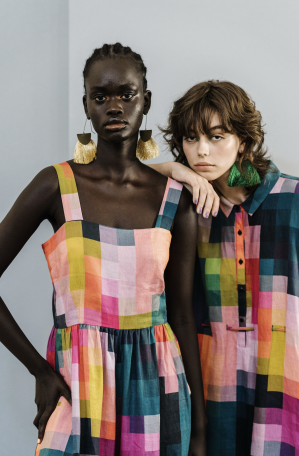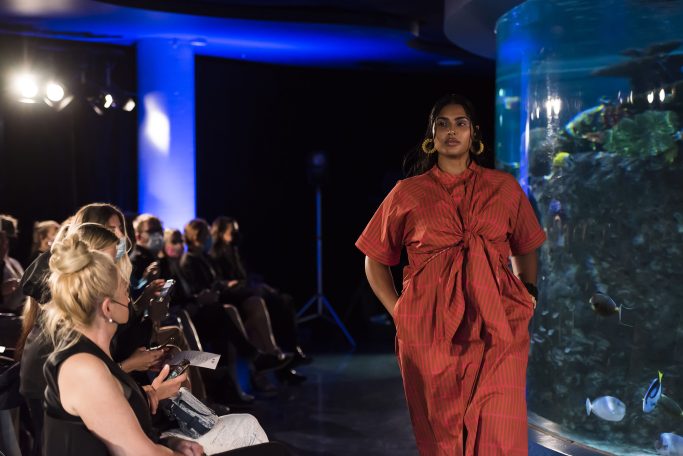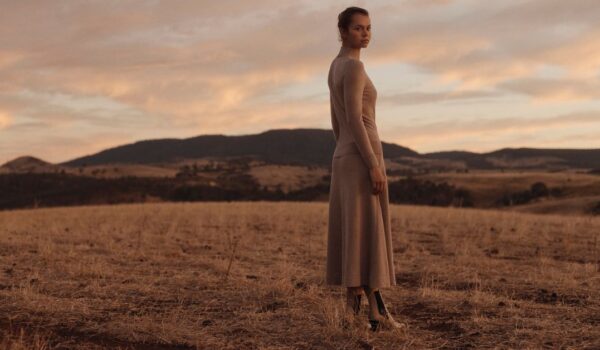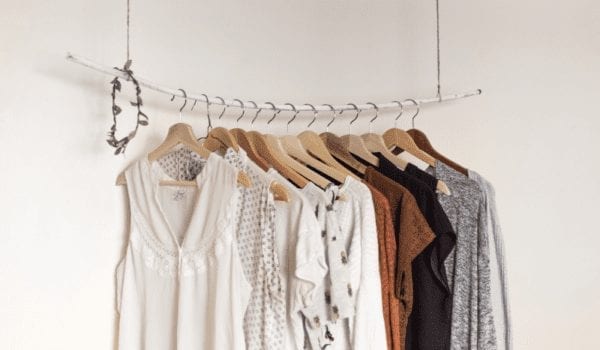Australian fashion brand Elk is on the front foot when it comes to sustainability. Here, Erika Martin , theEthics and Sustainability manager ELK, explains to The Carousel how its fashion brand is actively making a difference to the environment.

What are the major findings?
The ELK annual Transparency Reports provide an update on our progress against our sustainability goals and offers transparency into our business practices and supply chain.
Some of the 2021 highlights from our latest report include:
- ELK donated a total of $126K in cash, product, and paid volunteer hours to our charity partners, up from $85K in 2020
- Our 2021 collections were made with 45% environmentally preferred materials, up from 27% in 2020
- We increased the amount of FSC certified new paper used to 64%. Overall, 99% of our packaging is recyclable or compostable
- We joined the Transparency Pledge and are publishing our traced suppliers for Tiers 1 to 4 on the Open Apparel Registry
Other key findings include:
- 70% of ELK senior leaders are female, with 50% of senior leaders having formalised, flexible work arrangements
- We achieved 74% recycled fibre content across all ELK packaging
- We have mapped 100% of our tier 1 supply chain and 59% of our total 2021 supply chain from tiers 1 to 4Tell us what people can do to be more sustainable?
There are so many ways people can live more sustainably. For a more sustainable wardrobe, the key is to buy less, buy quality, take care of clothing by washing it less and repairing pieces when needed. At the end of a product’s life, it should be rehomed or recycled if it cannot be worn any longer. Look for pieces that are versatile and work well with other items in their wardrobe and seek out lower impact natural fibres that are certified as responsibly grown and processed.
To reduce emissions, they can install energy efficient LED lights and invest in renewables by installing solar or buying 100% GreenPower through their electricity retailer.
Other options that can make a real difference is reducing use of single-use packaging by shopping with reusable bags and buying staples in bulk where possible, as well as reducing food waste and composting organic kitchen scraps.

How does ELK make a difference to the environment?
Taking strong action on climate change is core to our values and we are working hard to reduce our environmental footprint. We are doing this by investing in renewable energy, installing or upgrading more energy efficient lighting and equipment, and diverting waste from landfill. We are also redesigning our products, packaging and printing to have a lighter environmental footprint and incorporating sustainable elements into new store designs. We are also supporting sustainable forestry, regenerative farming, and clean chemistry by switching to more ethically produced and environmentally preferred fibres and materials.
Key environmental achievements include:
- We joined 1% for the Planet in 2021, committing to donate 1% of all sales to environmental not–for–profit groups.
- Through our partnership with TreeProject we donate $2 for every online order, and this has supported the planting of 69,131 native seedlings since 2020.
- We have achieved an 90% reduction in our absolute scopes 1 & 2 carbon emissions, towards our target of 100% reduction by 2030.
- ELK has been powered by 100% renewable electricity since April 2021. Onsite solar provides 45% of our electricity with the balance purchased as 100% GreenPower.
Is the fashion industry moving in the right direction when it comes to the way it produces clothes?
There is movement in the right direction, however, it is our honest opinion that the progress towards making fashion “greener” is sadly a great deal slower than it should be.
Around the world there are many inspiring organisations, initiatives and brands challenging the traditional thinking of the fashion industry and calling for a change to how products are made. There is an increased investment into developing more sustainable fibres and materials and recycling systems to reduce the end-of-life impacts of clothing.

Given the urgency of addressing human rights issues and the climate crisis, much more need to be done to address the issue of waste and overproduction in the fashion industry. There needs to be greater transparency and accountability all along the value chain.
We are grateful for the opportunity to discuss our achievements, be open about our challenges and to discuss the future for the industry. There is so much positive change in motion and we are pleased to share how we are working on these issues at ELK.






